Jan 4, 2022
Take Your Pick: Japanese New Years Decorations
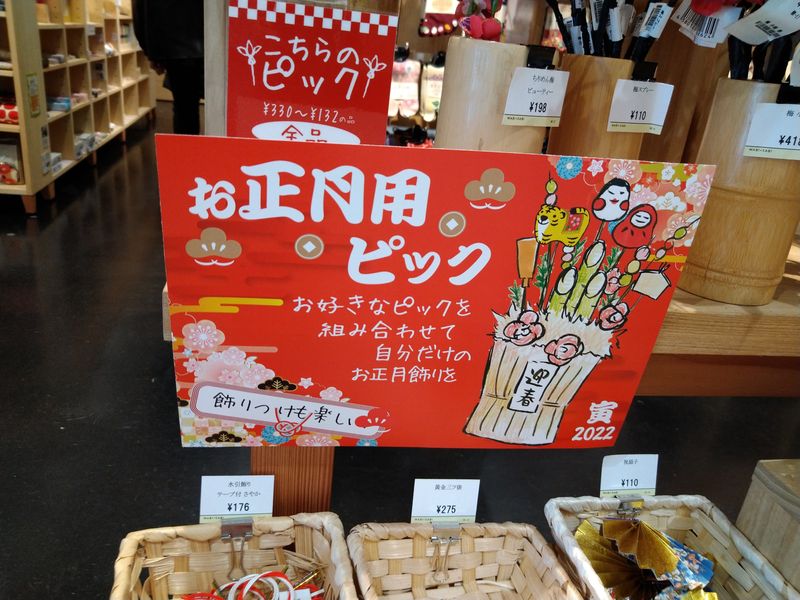
I saw this lovely selection of Build your Own New Years Decorations at a shop in a mall shortly before Christmas and felt that it was a great time to explore the elements that go into new years decorations in Japan. If you've ever been near a shrine, local business or train station in Japan around the New Years holidays, you have probably seen some of these about. Even after more than a decade in this country, I couldn't identify what all of these were or what they represented until I did a little research.
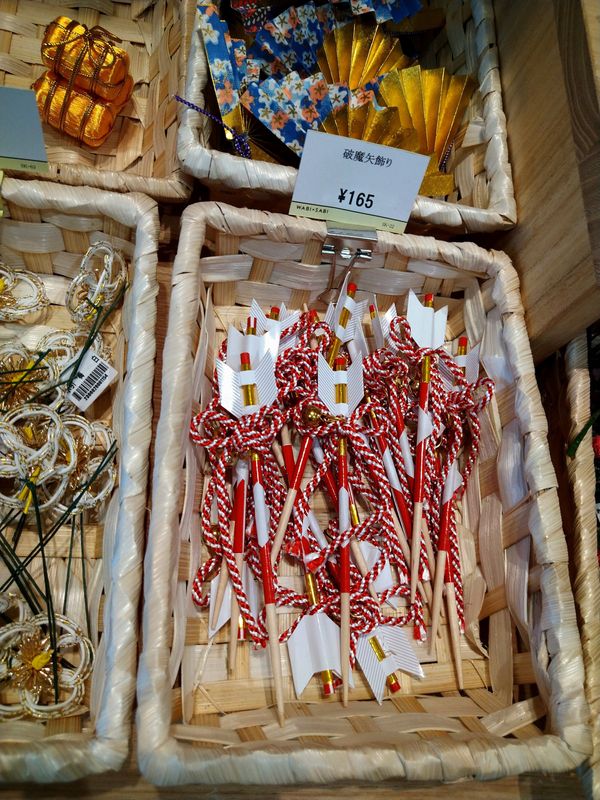
Little Arrows: Hamaya
Bigger versions of these arrows are available at Shinto shrines around this time of year and are meant to symbolically drive away evil spirits. The ones you get at the shrine usually have a depiction of the new year's zodiac animal attached. These ones are more basic but also much smaller.
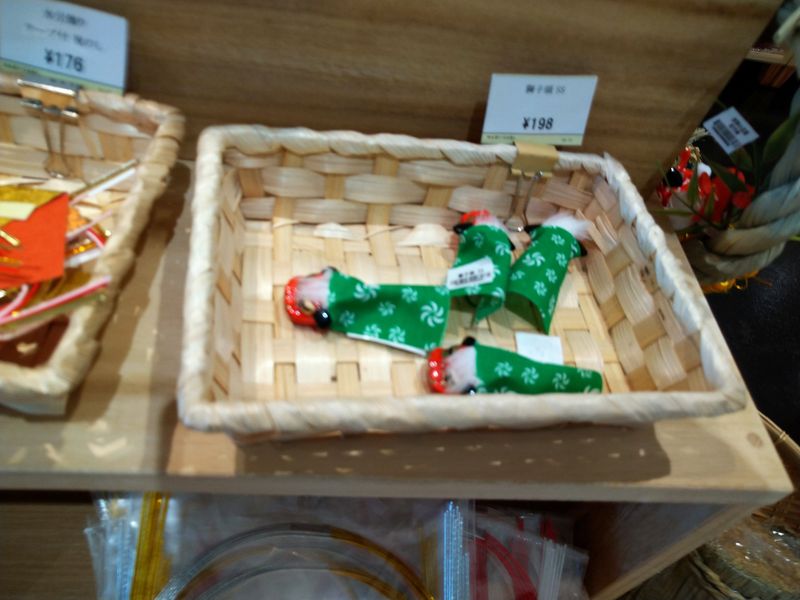
Lion Dance: Shishimai
I couldn't tell if this was a dragon or a lion for a long time. It turns out that this lion what looks like something that you might see in a traditional Chinese lion dance actually belongs to Japanese traditional lion dances. It appears that the exact origins of this dance are unclear but they follow the same basic rules as the Chinese version involving dancers within the lion costume mimicking the motions of a lion to traditional music in performances at festivals around special times of the year, like new years.
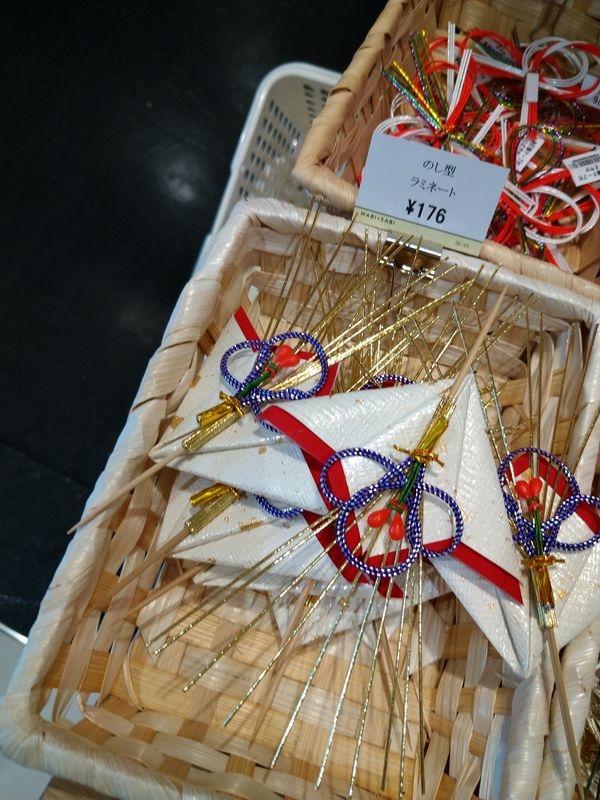
Paper String Bows: Mizuhiki
Bows are pretty and the shiny accoutrements add a little delicate sparkle to any decoration but the reason to use paper string is important as it will burn cleaner when the New Years decorations are converted to ash at dontosai in a few weeks. The use of the more open bow knot is meant to symbolize the desire for repeating the auspicious occasion of the new year. You won't see these same open bow knots on wedding or funeral envelopes where the mizuhiki decorations will take a different shape since repetition isn't what you want at either of those occasions.
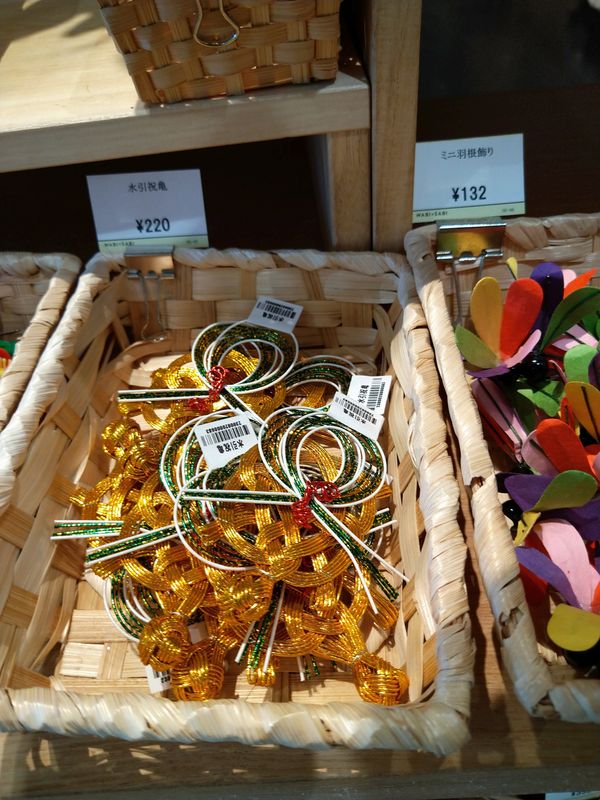
Paper String Turtles: Mizuhiki-Zaiku Kame
These you can also see on the pre-made decorations that are meant to hang in each room of your home for the holidays. In addition to being made from the same easily burned paper string as the bows above, these creatures are also symbols for longevity in Japan as well as good fortune.
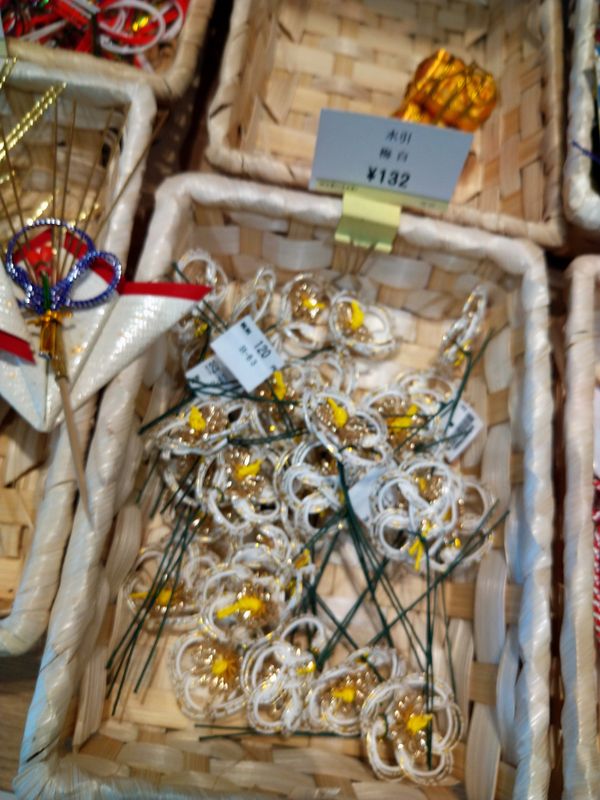
Paper String Turtles: Mizuhiki-Zaiku Tsuru
Much like the turtles listed above, these creatures are enduring symbols of longevity and good luck in Japan. The crane seems most commonly featured on celebratory envelopes and shimekarari wreaths where the turtle seems more likely to be found near the floor-based kadomatsu bamboo decorations.
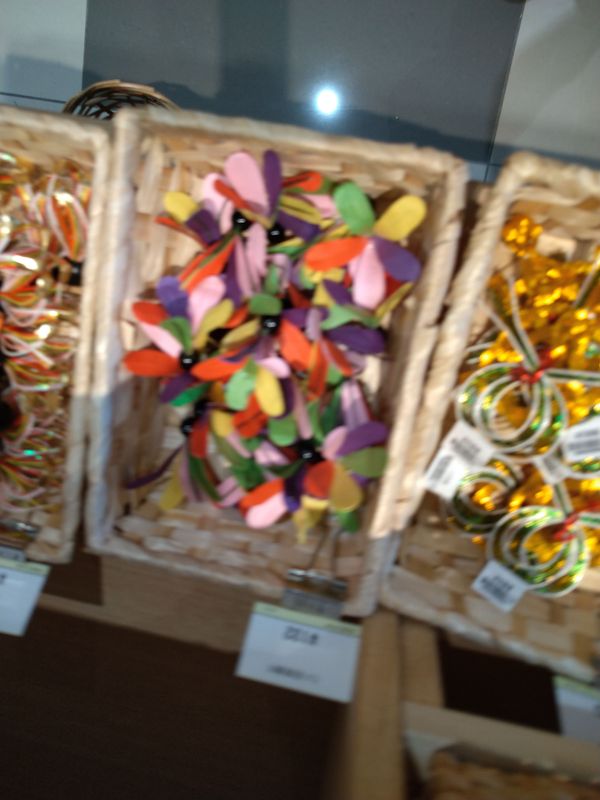
Shuttlecock: Hane
A traditional game of badminton played with wooden hagoita paddles and a colorful hane shuttlecock used to be the new years activity for young women in Japan. It was said that whoever kept the shuttlecock aloft the longest would have the best protection from mosquitos in the coming year.
However you chose to decorate for new years, let's hope 2022 is a great one for all of us with fewer pests and more good luck all around.



0 Comments